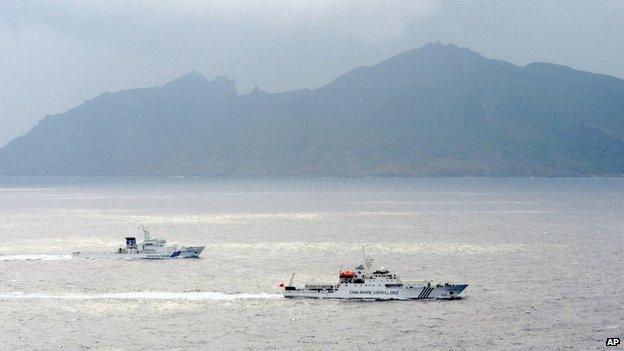Japan to relax arms export ban
- Published
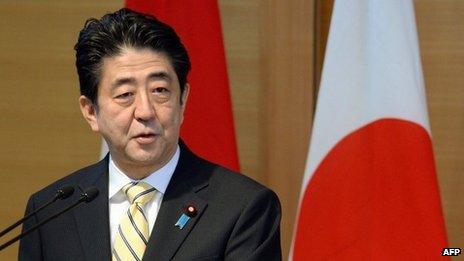
PM Shinzo Abe wants Japan to adopt a more proactive security strategy
Japan is to ease its self-imposed arms export ban for the first time in almost 50 years.
In the past all military sales have effectively been banned, although there has been technology transfer to the US.
The new conditions would allow Japan to jointly develop arms with allies and give its defence industry access to new markets and technology.
The move is likely to be viewed with suspicion in China, which has accused Japan of increasing militarism.
Japan adopted a pacifist constitution after World War Two which prohibits going to war except in cases of self-defence.
It has for decades observed the "three principles" of not exporting arms to countries that are communist, subject to UN arms embargos and involved or likely to be involved in international conflicts.
These principles were adopted in 1967 and later evolved into a full self-imposed ban.
But Japanese Prime Minister Shinzo Abe is keen to bolster national security and also normalise some of the restrictions Japan placed on itself after World War Two.
'Joint development'
Under the policy, the restrictions on exports to countries involved in conflicts or subject to UN embargos would remain.
Exports will be allowed in cases where they contributed to global peace and served Japan's security interests, Kyodo news agency reported.
Japan would impose strict screening on exports and would be transparent about the process, it said. Japan would also not allow its exports to be sold on to third parties.
"Under the new principles, we have made the procedure for transfer of defence equipment more transparent," said Chief Cabinet Secretary Yoshihide Suga.
"That will contribute to peace and international co-operation from the standpoint of proactive pacifism."
"And we will participate in joint development and production of defence equipment," he added.
Earlier this year, China warned against the move.
"Against the backdrop of an intensifying swing to the right for Japanese politics, the intention behind and effect of massively loosening restrictions on the export of weapons really worries people," Chinese Foreign Ministry spokeswoman Hua Chunying said in February.
Late last year, Japan's cabinet approved a new national security strategy and increased defence spending in a move widely seen as aimed at China.
Over the next five years, Japan will buy hardware including drones, stealth aircraft and amphibious vehicles.
- Published17 December 2013
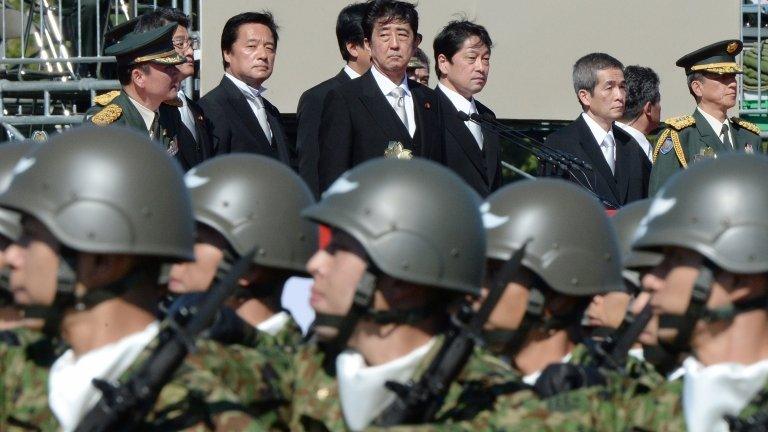
- Published17 December 2013
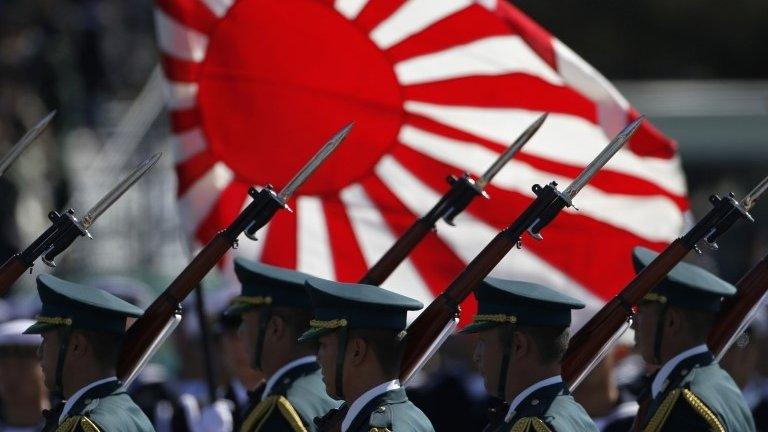
- Published17 December 2013
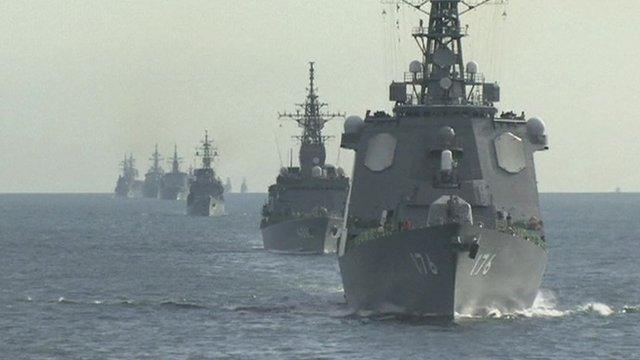
- Published9 January 2013
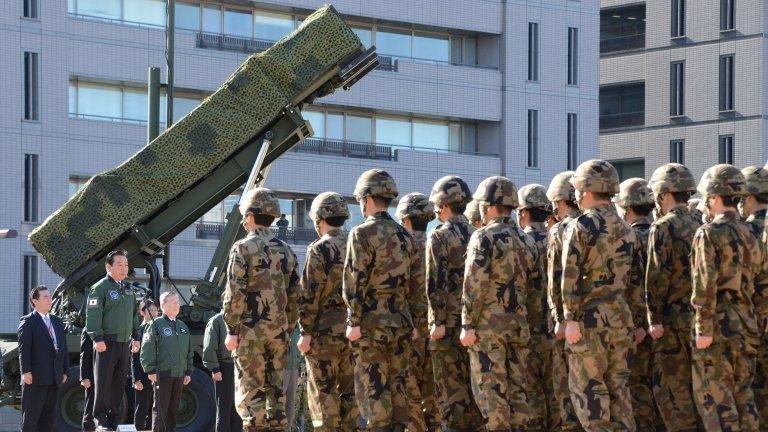
- Published10 November 2014
